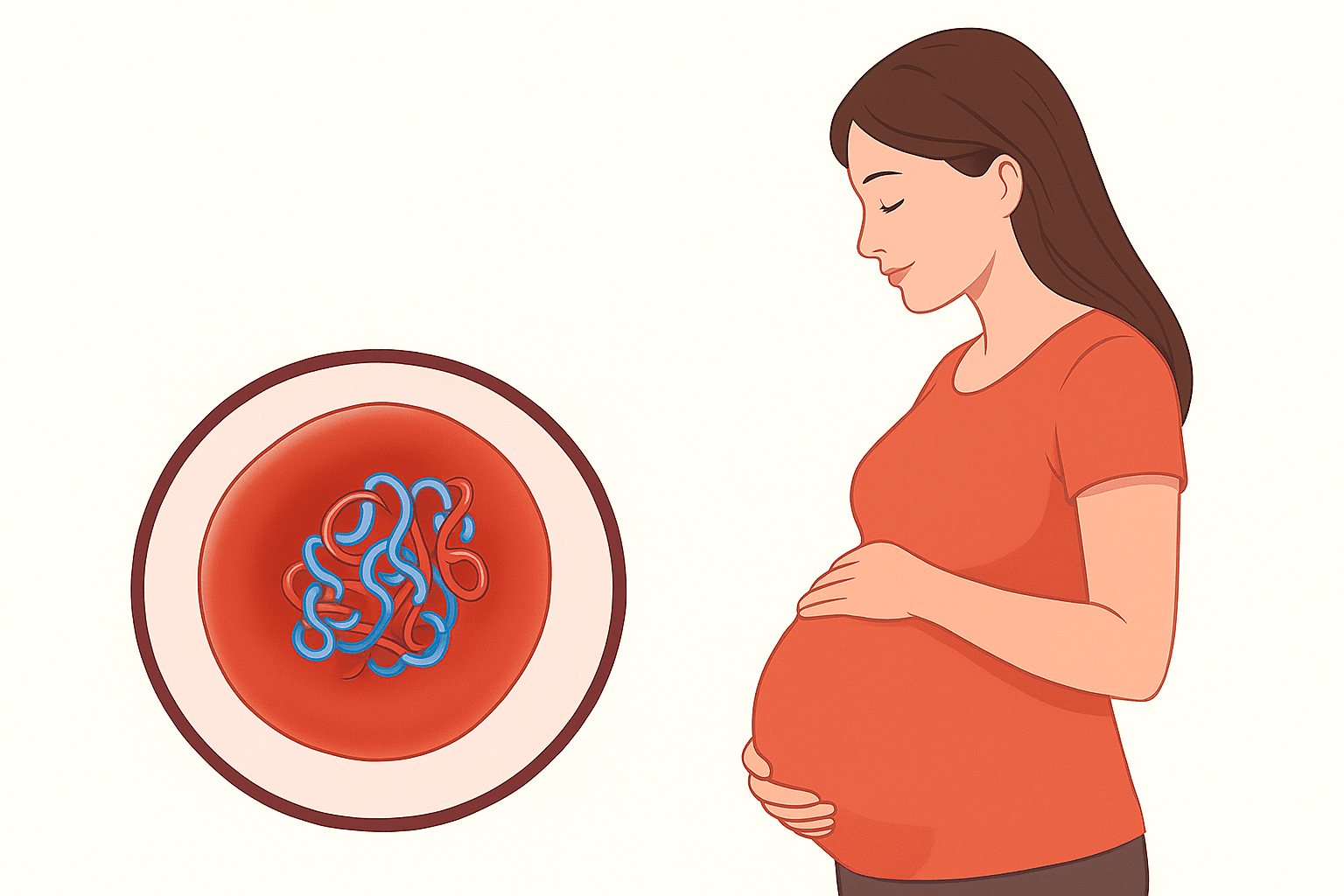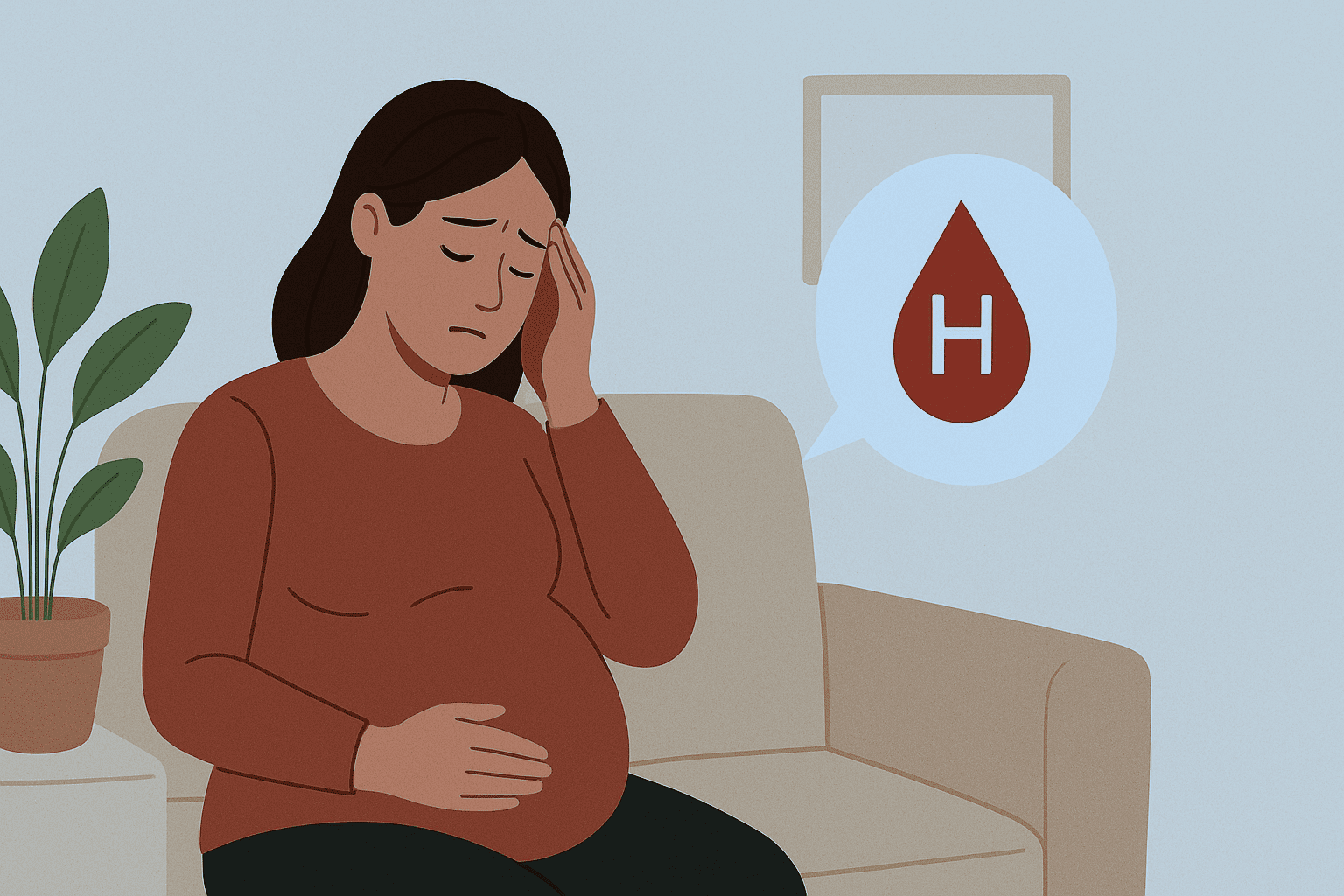🌼 Introduction: My Scary Low Haemoglobin Moment
I still remember sitting in my doctor’s office during my second trimester when she looked up from my blood report and said,
“Your haemoglobin is a bit low. We need to work on that.”
My heart sank. I was already dealing with morning sickness, fatigue, and the emotional rollercoaster of pregnancy. Now low haemoglobin was added to the list.
I had heard stories — low iron levels could cause tiredness, dizziness, and even complications during delivery. So I knew I had to take this seriously. But I didn’t want to rely only on supplements. I wanted to find natural ways to support my body too.
That’s how my little journey began — learning, experimenting, and slowly improving my haemoglobin levels with simple daily habits.
Table of Contents
🩺 Understanding Haemoglobin in Pregnancy
Haemoglobin is the protein in red blood cells that carries oxygen throughout your body. During pregnancy, your body makes more blood to support your growing baby — which means you need more iron to make enough haemoglobin.
According to the Mayo Clinic, normal haemoglobin levels in pregnancy usually range from 11 to 13 g/dL, but some women experience a drop due to increased blood volume. If levels fall too low, it can lead to iron-deficiency anaemia, making you feel weak, pale, or breathless.

Common causes of low haemoglobin in pregnancy include:
- Not getting enough iron or folic acid from diet
- Morning sickness affecting food intake
- Increased iron needs due to growing baby
- Short gaps between pregnancies
🍎 What I Did to Increase My Haemoglobin Naturally
Here’s exactly what worked for me — slow, steady, and realistic changes I could actually maintain.
🥬 1. I Focused on Iron-Rich Foods (Daily Habit)
Instead of thinking of “diet plans”, I focused on adding one iron-rich food to every meal.
Some of my go-to foods were:
- Spinach, kale, and amaranth leaves – easy to add in dal or paratha
- Beetroot – I grated it into salads or juiced it with apple
- Dates and raisins – my sweet little iron bombs
- Jaggery (gur) – a natural sweetener that helped my cravings too
- Lentils, chickpeas, and black beans – great for protein and iron combo
According to Harvard Health, iron from plant sources (non-heme iron) is better absorbed when paired with vitamin C, so I started squeezing lemon juice over my meals — a small trick that made a big difference.
🍊 2. I Increased My Vitamin C Intake
My doctor told me:
“If you’re eating iron, don’t forget vitamin C — it’s like the key that unlocks absorption.”
So I added:
- A glass of fresh orange juice with breakfast
- Amla (Indian gooseberry) in chutneys
- Tomatoes, bell peppers, and citrus fruits in salads
I noticed my energy improved within a couple of weeks. It wasn’t magic — just biology working better.
🥩 3. I Added Moderate Iron Supplements (Doctor-Approved)
Even though I wanted to do everything naturally, my doctor prescribed iron tablets — and I learnt that’s okay.
Pregnancy increases iron needs so much that diet alone sometimes can’t keep up. According to WebMD, many pregnant women need about 27 mg of iron per day.
To avoid stomach upset, I took my supplement after lunch and avoided coffee or tea for at least one hour afterwards (they block iron absorption).
☕ 4. I Cut Back on Tea & Coffee
This one was hard! But my doctor explained that tannins in tea and coffee can reduce iron absorption by up to 50%.
So I switched my evening tea habit to:
- Herbal teas like ginger or chamomile
- Warm water with lemon or honey
After a few weeks, my digestion improved, and my energy crashes reduced too.
🧘♀️ 5. I Managed Stress & Slept Better
When I was stressed, my body felt drained no matter what I ate. It turns out stress hormones can also affect red blood cell production.
I began doing:
- Gentle prenatal yoga (YouTube sessions worked perfectly)
- 5-minute meditation before bed
- Listening to calm music and sleeping early
Rest really is the secret supplement no one talks about.
🩹 6. I Monitored Progress — Without Obsessing
After six weeks, my next blood test showed my haemoglobin had gone up from 9.8 to 11.4 g/dL.
I didn’t expect a miracle, but this was proof that small, consistent habits worked. My doctor was happy, and more importantly, I felt stronger, less dizzy, and more confident in my pregnancy journey.
🌿 Other Helpful Tips I Learned Along the Way
- Cook in an iron skillet. Studies show it adds trace iron to food naturally.
- Stay hydrated. Water helps your blood circulate nutrients efficiently.
- Don’t skip folate. Folic acid (vitamin B9) helps your body make healthy red blood cells. Foods like spinach, avocado, and citrus fruits are great.
- Check for B12 deficiency. Especially if you’re vegetarian, as low B12 can also cause anaemia.
- Eat small, balanced meals. It helps reduce nausea and keeps your energy steady.
💬 My Honest Reflection
Looking back, I realise boosting haemoglobin wasn’t just about eating “iron-rich foods”. It was about listening to my body — when it was tired, craving, or just needed a little extra care.
Pregnancy taught me patience. You can’t rush your body, but you can support it.
Today, I feel grateful that I took those small steps early — they not only improved my blood levels but also helped me build healthier habits for life.
If you’re pregnant and struggling with low haemoglobin, please don’t panic. With the right guidance and consistent care, your body can bounce back beautifully.
⚠️ Disclaimer
This article is based on personal experience and research from trusted health sources like Mayo Clinic, WebMD, and Harvard Health.
It is not medical advice. Always consult your doctor before making dietary or supplement changes during pregnancy.

